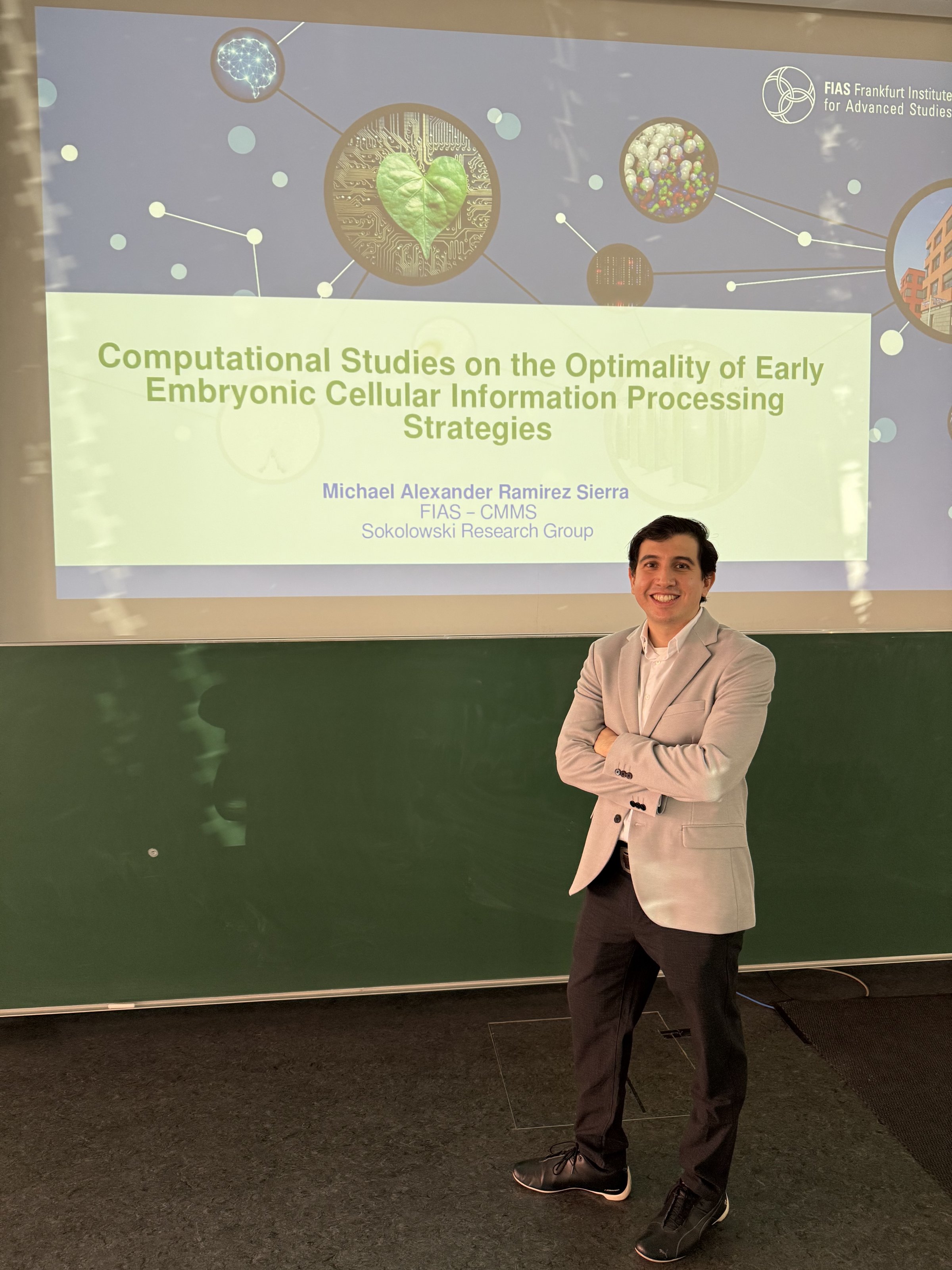April 16, 2025
PhD in Bioinformatics for Michael Alexander Ramírez Sierra
AI-powered simulations illuminate early stages of embryonic development
On 11 April 2025, Michael Alexander Ramírez Sierra successfully defended his doctoral thesis “Computational Studies on the Optimality of Early Embryonic Cellular Information Processing Strategies” under the guidance of FIAS Fellows Thomas R. Sokolowski and Franziska Matthäus as part of the Center for Multiscale Modelling in Life Sciences (CMMS) research initiative.
In his dissertation, Ramírez Sierra combines mathematical modeling, computer simulations, machine learning, and information theory to investigate how early embryos—of mice and fruit flies—robustly form precise cell-fate patterns even though these arise from extremely noisy biochemical processes.
Using cutting-edge, simulation-based inference schemes driven by modern machine learning techniques, he demonstrates how spatially resolved gene regulation and intercellular communication mechanisms (such as feedback via the FGF4 signaling molecule) help ensure robust and reproducible differentiation, including the reliable specification of epiblast and primitive endoderm tissues, which later give rise to the embryo proper and parts of the placenta. In the fruit fly embryo, his statistical analysis reveals universal regulatory mechanisms that coordinate the onset of gene transcription along the anterior-posterior axis, hinting at a general principle of gene regulation in eukaryotes.
Ramírez Sierra’s work argues that randomness (noise) in embryonic systems is not always a detriment to be suppressed; it can help cells cope with developmental constraints. His findings underscore that cells and tissues have evolved diverse strategies to manage such noise—and can sometimes even exploit it for developmental benefit.
By achieving a high degree of realism and employing effective parameter inference techniques, his research paves the way for computational “digital twins” of development that let researchers virtually test how changes in gene expression or signaling pathways might influence developmental outcomes.
Next steps at the SCALE initiative
Continuing his research within the SCALE initiative (SubCellular Architecture of LifE), Ramírez Sierra now works under the guidance of FIAS Senior Fellow Roberto Covino on a project that aims to uncover hidden biophysical parameters of receptor dimerization from single-particle tracking (SPT) experiments. By generating a digital twin that simulates realistic SPT data and combining it with Bayesian inference, he seeks to understand how membrane receptors assemble into functional signaling units—a process directly linked to numerous diseases.
Publications
• Ramírez Sierra, M.A., Sokolowski, T.R. (2024). “AI-powered simulation-based inference of spatial-stochastic gene regulation in early mammalian embryos.” PLoS Computational Biology. Link: https://journals.plos.org/ploscompbiol/article?id=10.1371/journal.pcbi.1012473
• Ramírez Sierra, M.A., Sokolowski, T.R. (2024). “Comparing AI vs. optimization workflows for spatial-stochastic simulation-based inference in embryonic tissues.” Machine Learning: Science and Technology. Link: https://iopscience.iop.org/article/10.1088/2632-2153/ada0a3
Details on CMMS projects: https://fias.institute/en/projects/cmms/
Information on the SCALE initiative: https://scale-frankfurt.org/projects/
